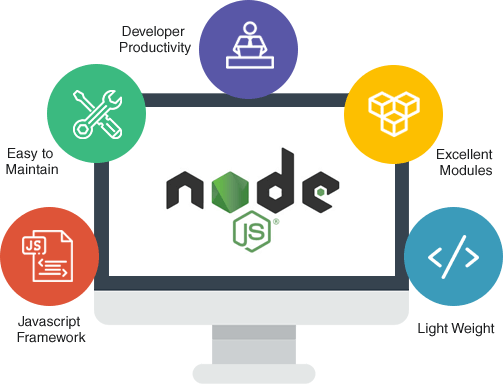Buzz Haven: Your Source for Trending Insights
Stay updated with the latest buzz in news, trends, and lifestyle.
Node.js: Where Your JavaScript Dreams Come to Life
Unlock the power of Node.js and watch your JavaScript dreams soar! Dive in now to transform your coding ambitions into reality.
Getting Started with Node.js: Your First Steps Towards Full-Stack JavaScript
Getting started with Node.js is an exciting journey into the world of full-stack JavaScript development. As a server-side runtime environment built on Chrome's V8 engine, Node.js allows developers to execute JavaScript on the server, thereby enabling the creation of scalable network applications. To kick off your Node.js journey, begin by ensuring that you have Node.js installed on your local machine. You can download it from the official Node.js website. Once installed, verify the installation through your command line by typing node -v to check the version.
After setting up Node.js, your next step is to create your first web server. This can be easily accomplished with just a few lines of code. Here’s a simple example:
const http = require('http');
const server = http.createServer((req, res) => {
res.statusCode = 200;
res.setHeader('Content-Type', 'text/plain');
res.end('Hello World!');
});
server.listen(3000, '127.0.0.1', () => {
console.log('Server running at http://127.0.0.1:3000/');
});This code snippet sets up a basic web server that listens on port 3000 and responds with “Hello World!” when accessed. With this simple setup, you are not only familiarizing yourself with the fundamentals of Node.js but also establishing a solid foundation for further exploration into full-stack JavaScript development.

Node.js vs. Traditional Web Servers: Why Choose Node.js?
In the world of web development, choosing between Node.js and traditional web servers can significantly impact your project's performance and scalability. Traditional web servers, like Apache and Nginx, operate on a request-response model. Each request from the client is handled sequentially, leading to potential bottlenecks when managing multiple connections. In contrast, Node.js utilizes an event-driven, non-blocking I/O model, enabling it to handle numerous simultaneous connections with ease. This makes Node.js an ideal choice for applications requiring real-time data processing, such as chat applications or online gaming platforms.
Moreover, adopting Node.js can streamline your development process. With its use of JavaScript on both the client and server side, developers can utilize the same language throughout the entire stack, enhancing code reusability and collaboration. This unified approach not only speeds up development but also simplifies debugging and maintenance. Therefore, if you're looking to build highly responsive and efficient applications, Node.js stands out as a compelling option over traditional web servers.
Top 10 Node.js Libraries Every Developer Should Know
When it comes to building scalable and efficient applications, Node.js offers a powerful runtime that is complemented by a rich ecosystem of libraries. In this article, we will explore the Top 10 Node.js Libraries every developer should know. These libraries not only simplify the development process but also enhance the performance of your applications. Whether you are into web development, API creation, or real-time applications, there's a library for every need.
- Express.js - A minimal and flexible Node.js web application framework that provides a robust set of features for web and mobile applications.
- Mongoose - An elegant MongoDB object modeling tool for Node.js that provides a schema-based solution.
- Socket.io - A library that enables real-time, bidirectional communication between web clients and servers.
- Passport - A simple and unobtrusive middleware for Node.js that facilitates authentication.
- Jest - A delightful JavaScript testing framework with a focus on simplicity.
- Axios - A promise-based HTTP client for the browser and Node.js.
- Chalk - A library to style your terminal strings, making it easy to add color and formatting to your console outputs.
- Dotenv - A zero-dependency module that loads environment variables from a .env file into process.env.
- Node-fetch - A lightweight module that brings `window.fetch` to Node.js, allowing you to make HTTP requests.
- PM2 - A production process manager for Node.js applications that enables you to keep applications running and manage their performance.